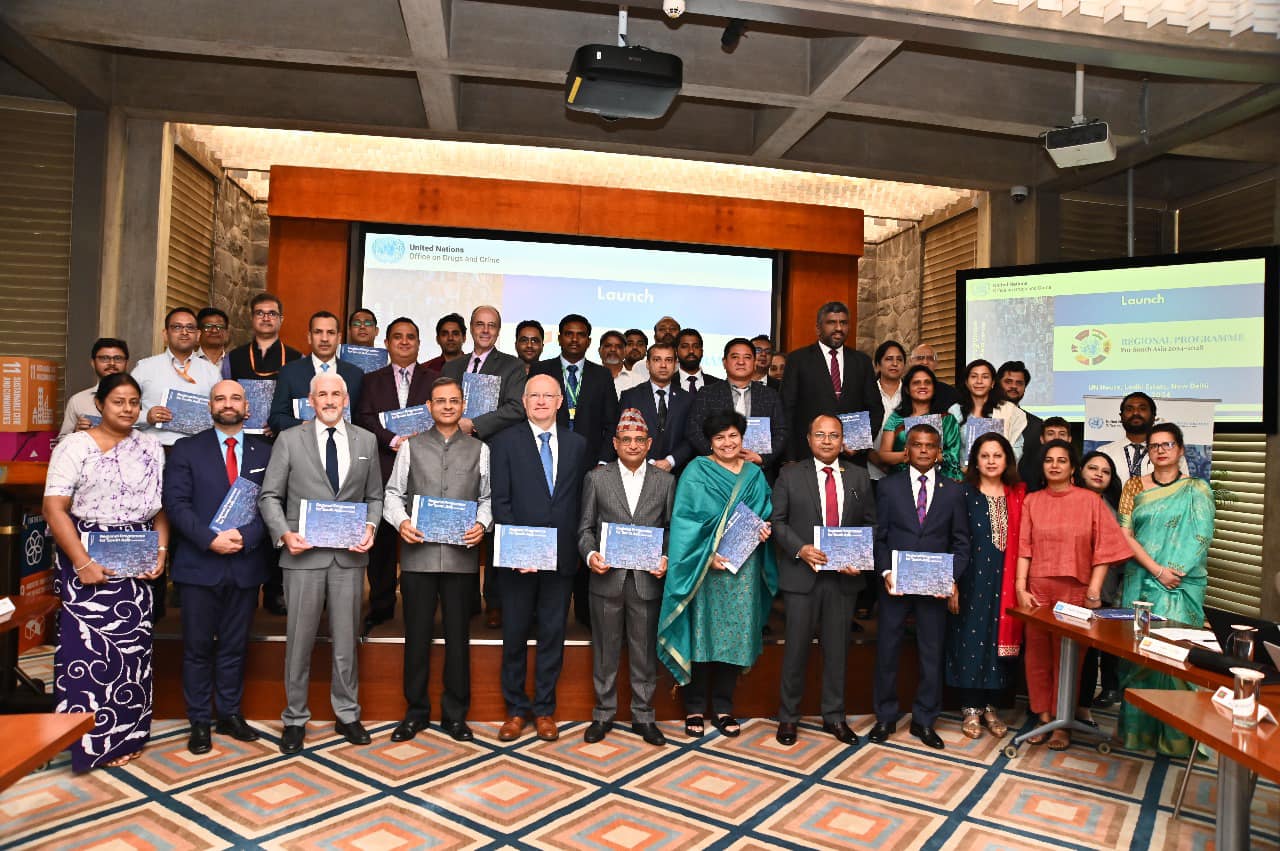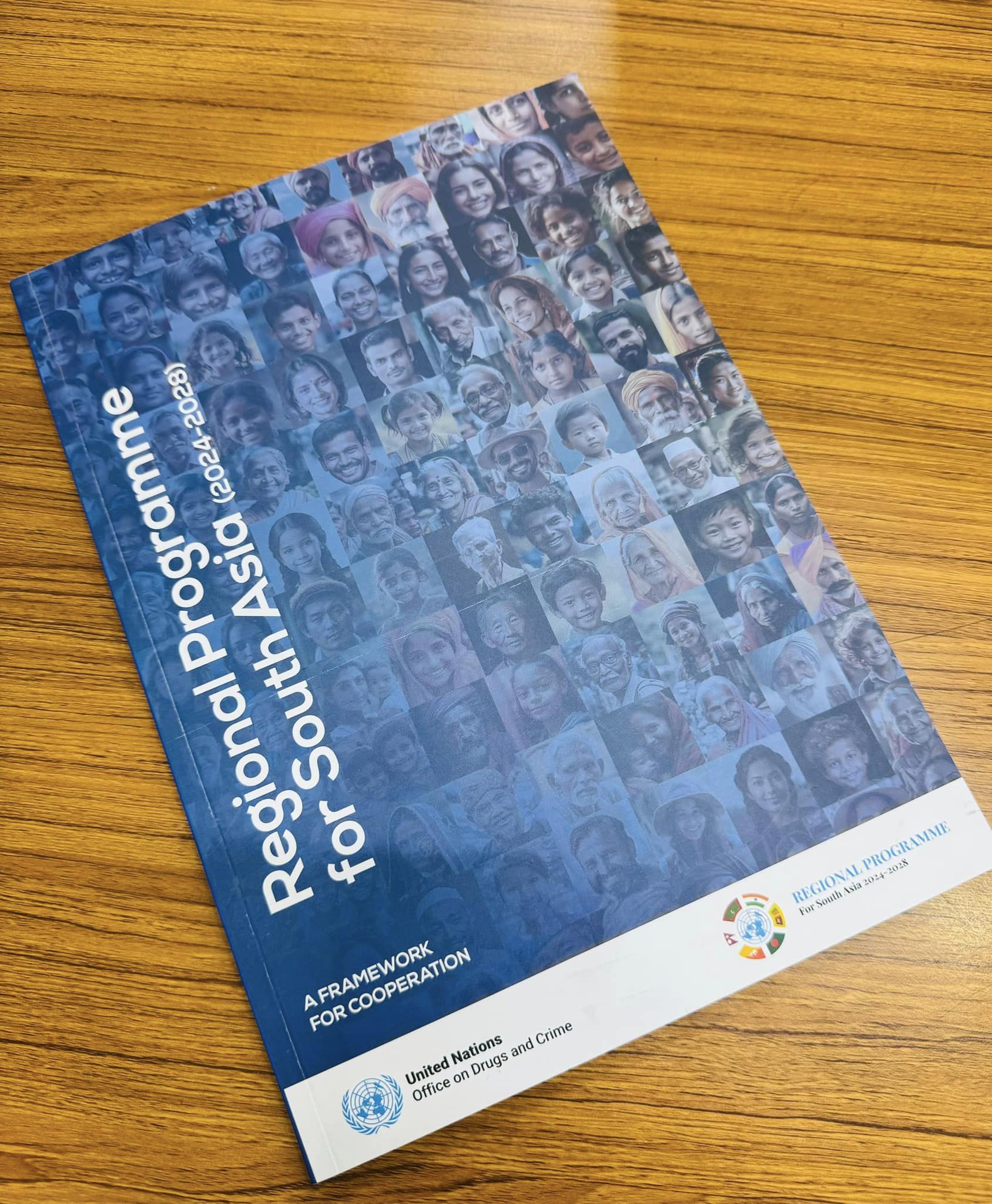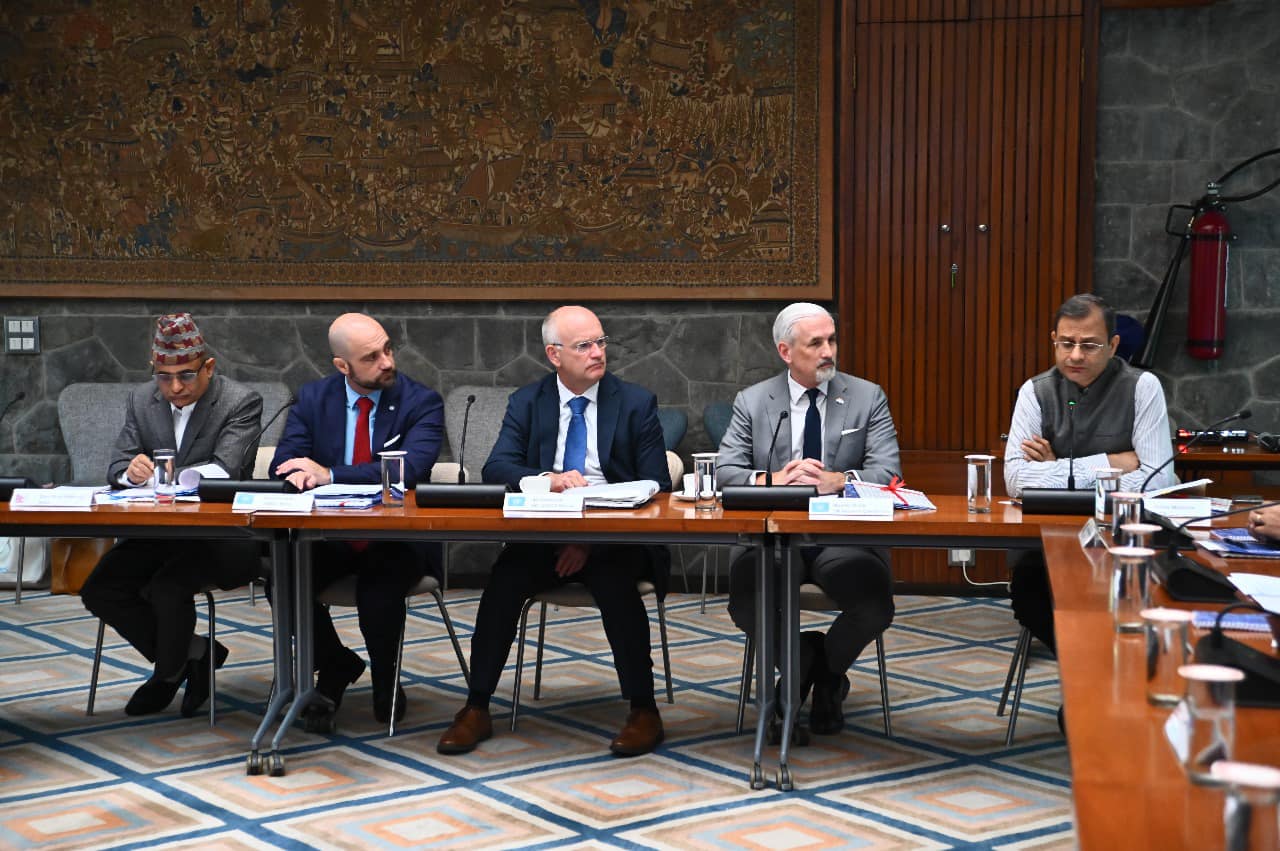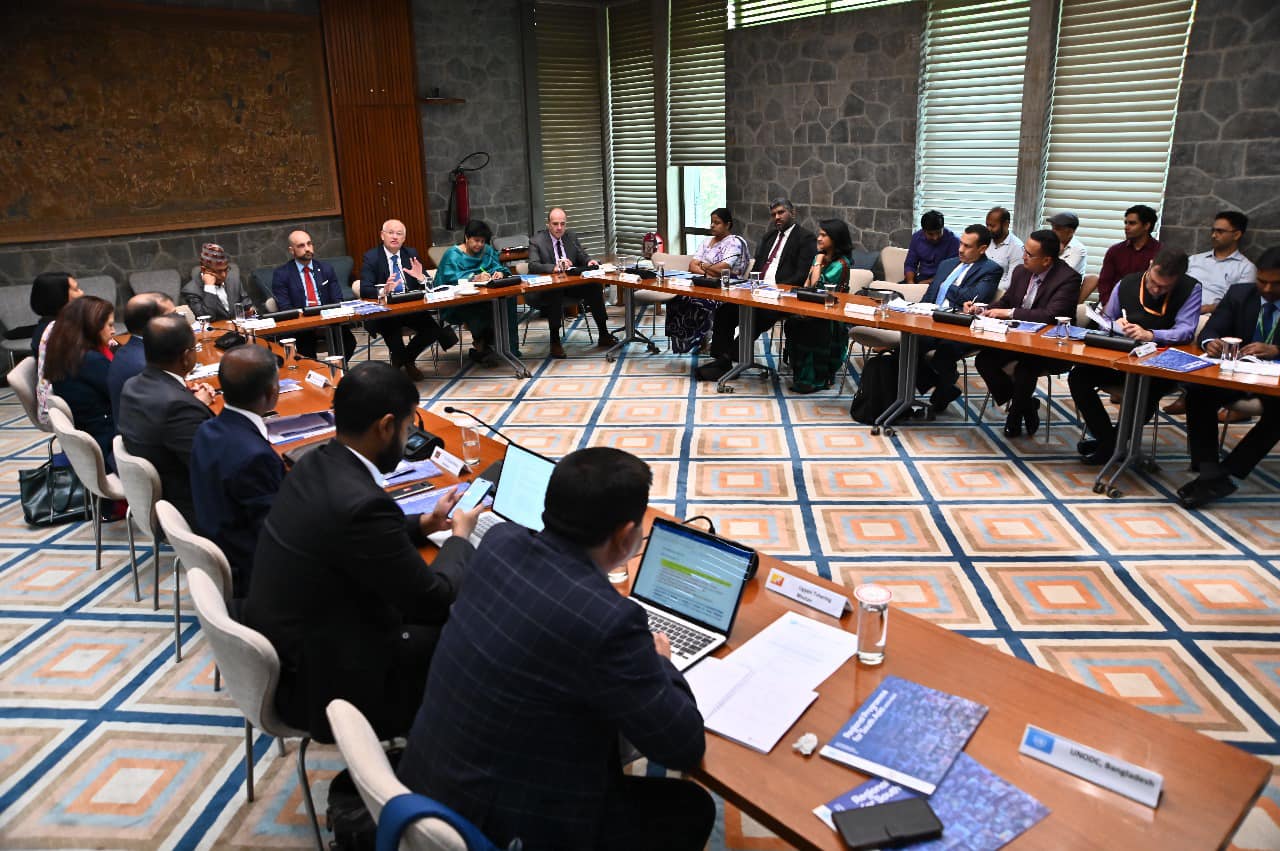South Asia: UNODC’s Regional Programme for South Asia (2024-2028) signals renewed commitment to strengthen justice, health and the rule of law

New Delhi, India/07 May 2024: With over 1.6 billion people, South Asia encompasses over 20% of the global population, with youth below 24 years of age constituting over 40% of its demographic. Despite commendable progress in meeting development goals and navigating through conflict and crises, the region grapples with instabilities and uncertainties influenced by global dynamics.
South Asia also ranks among the most vulnerable regions to climate change challenges, impacting its peace, security, and sustainable development prospects. Considering emerging global threats, the region faces considerable challenges to health, the rule of law and human security.
Against this backdrop, the United Nations Office on Drugs and Crime (UNODC) has marked a milestone with the launch of its new Regional Programme for South Asia (RPSA) (2024-2028) —a five-year strategic framework of cooperation to strengthen justice, health, peace and the rule of law in South Asia with a focus on Bangladesh, Bhutan, India, Maldives, Nepal and Sri Lanka.

Welcoming the initiative, senior government representatives from Bangladesh, Bhutan, India, Maldives, Nepal, and Sri Lanka formally launched the Regional Programme for South Asia at the UN House in New Delhi last week.
The framework outlines the scope and strategic focus of UNODC’s programmatic action in South Asia with five sub-programmes: Addressing and Countering the World Drug Problem; Preventing and Countering Organised Crime; Preventing and Countering Corruption and Economic Crime; Preventing and Countering Terrorism and Crime Prevention and Criminal Justice.
At the launch, Mr Bo Mathiasen, UNODC Deputy Director of Operations, Mr Shombi Sharp, UN Resident Coordinator in India, Mr Sanjay Malhotra, Secretary, Department of Revenue, Government of India and Mr Dina Mani Pokharel, Attorney General of Nepal called for collective efforts against emerging challenges.

UNODC Regional Representative for South Asia Marco Teixeira and Deputy Representative Suruchi Pant presented key areas envisaged under the new RPSA, outlining important areas of cooperation and the way forward. South Asian government representatives reiterated their support to UNODC’s efforts, highlighting the importance of unified action in addressing shared challenges.
Mr. Mathiasen emphasized the importance of collective efforts in combating emerging challenges, stressing the need for unified action to address shared threats to security and stability in the region. This sentiment was echoed by Mr. Sharp, who highlighted the pivotal role of the new Regional Programme in fostering collaboration and cooperation among South Asian nations.
The RPSA has been designed and developed through extensive and inclusive consultations with key counterparts and on the basis of various assessments, workshops, project evaluations and capacity-building initiatives in the region. It will act as a framework to secure and reinforce the rule of law, strengthen regional cooperation and protect vulnerable groups and communities from the threats posed by drugs, crime, corruption and terrorism.

The Programme is aligned with the overall UNODC corporate strategy (2021-2025) and harmonized with the wider UN system’s approach to promote sustainable development in the region. The RPSA is also fully inscribed within the UNODC inter-regional approach and is linked to other Regional Programmes and global strategies – such as the UNODC Strategy for Gender Equality and Women’s Empowerment (2022-2026).
Read the UNODC Regional Programme for South Asia (2024-2028): https://www.unodc.org/documents/southasia//publications/UNODC_Regional_Programme_for_South_Asia_2024-2028.pdf